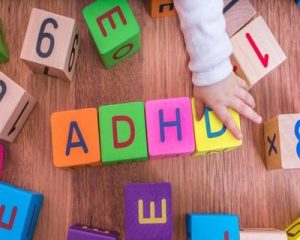- Home
- Editorial
- News
- Practice Guidelines
- Anesthesiology Guidelines
- Cancer Guidelines
- Cardiac Sciences Guidelines
- Critical Care Guidelines
- Dentistry Guidelines
- Dermatology Guidelines
- Diabetes and Endo Guidelines
- Diagnostics Guidelines
- ENT Guidelines
- Featured Practice Guidelines
- Gastroenterology Guidelines
- Geriatrics Guidelines
- Medicine Guidelines
- Nephrology Guidelines
- Neurosciences Guidelines
- Obs and Gynae Guidelines
- Ophthalmology Guidelines
- Orthopaedics Guidelines
- Paediatrics Guidelines
- Psychiatry Guidelines
- Pulmonology Guidelines
- Radiology Guidelines
- Surgery Guidelines
- Urology Guidelines
Delayed-release stimulant methylphenidate effective in ADHD

A phase 3 study of children ages 6-12 years with attention deficit/hyperactivity disorder (ADHD) has shown that a delayed-release, long-acting formulation of the stimulant methylphenidate, when taken in the evening, led to significant improvement in ADHD symptoms and functional impairment first thing the next morning, compared to a placebo. Children taking the delayed-release stimulant did not have to wait for a morning dose to take effect and also benefited from improved symptoms later in the afternoon and evening, according to the study results published in Journal of Child and Adolescent Psychopharmacology, a peer-reviewed journal from Mary Ann Liebert, Inc., publishers. The article is available free on the Journal of Child and Adolescent Psychopharmacology website.
The article entitled "Efficacy and Safety of HLD200, Delayed-Release and Extended-Release Methylphenidate, in Children with Attention-Deficit/Hyperactivity Disorder" is coauthored by Steven Pliszka, MD, from The University of Texas Health Science Center at San Antonio and colleagues from Massachusetts General Hospital (Boston, MA), Westside Medical Family Practice (Clinton, UT), University of Tennessee Health Science Center (Memphis, TN), Meridien Research (Maitland and Bradenton, FL), Children's Development Center (Winter Park, FL), Ironshore Pharmaceuticals & Development (Grand Cayman, Cayman Islands), and Mount Sinai Medical Center (New York, NY), on behalf of the HLD200-108 Study Group.
The drug formulation, which consists of two layers of microbeads with an inner drug-loaded core, delays release of the active ingredient for 8-10 hours and then provides controlled extended release designed to cover the early morning into the evening. The medication was well tolerated, with the main adverse effects of appetite suppression and insomnia being those commonly reported for other formulations of methylphenidate.
"Developing new formulations of effective medications for patients with ADHD improves the lives of children with the disorder," says Harold S. Koplewicz, MD, Editor-in-Chief of the Journal of Child and Adolescent Psychopharmacology and President of the Child Mind Institute in New York.
For more details click on the link: http://dx.doi.org/10.1089/cap.2017.0084

Disclaimer: This site is primarily intended for healthcare professionals. Any content/information on this website does not replace the advice of medical and/or health professionals and should not be construed as medical/diagnostic advice/endorsement or prescription. Use of this site is subject to our terms of use, privacy policy, advertisement policy. © 2020 Minerva Medical Treatment Pvt Ltd